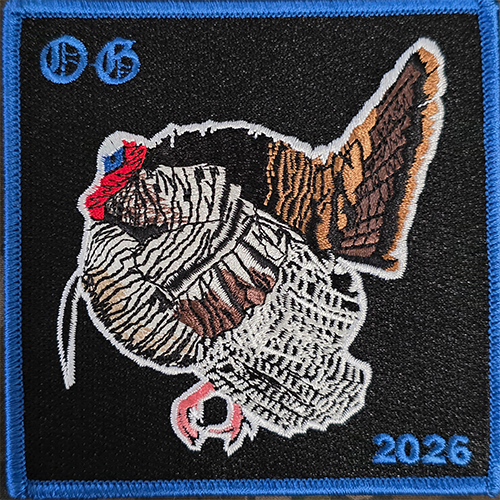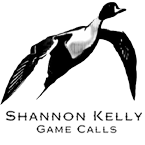"Locator Calls"....Two of the most important words in the turkeys hunters vocabulary. We have discussed this soooo many times before, it seems useless to go over it again, but since we are talking about things that are important to beginners, it should be reinforced one more time.
First, the disclaimer: if you hunt small parcels that you are intimately familiar with, you may not benefit from using locator calls. Any time you are hunting larger parcels that you are not familiar with, locator calls can mean the difference between success and failure.
The basics: the term "locator call" refers to using a noise-making device of some sort to make a gobbler gobble. Generally speaking, anything that will make a loud, sudden sound,...when used at the right time,...will sometimes make a gobbler "shock" gobble at the sound. During the breeding season, gobblers are, to some degree, "hard wired" to respond to other gobbler's gobbling by almost instantaneously gobbling when another gobbler sounds off. The propensity to do that carries over to other sounds such that they will often quickly gobble at any loud, abrupt sound they hear nearby.
Gobblers are more likely to do that when they are on the roost, either in the evening after they have flown up, or in the morning before they fly down. They will sometimes respond during the day, as well, but the real advantage of the use of locators is in finding birds on the roost. "Prime time" for roost gobbling is the last fifteen (or so) minutes before full darkness in the evening,...and the thirty to forty-five minutes right after daylight in the morning.
Evening roost gobbling can be a crap-shoot, depending on where you hunt. In some places, gobblers will gobble well in the evening,...and in some places evening gobbling is almost non-existent. On the other hand, morning gobbling in response to locator call use is almost a sure bet,...if you are using the proper locator with the proper tactics.
What is the "proper" locator call? The most important thing is for the sound that comes out of it to be LOUD,...and abrupt. Commonly used locators include barred owl imitators, crow calls, gobble imitators, coyote howlers, hawk calls,...and an assortment of others. Loud and abrupt,...that is the key,...realism, not so much. The turkey's brain is responding to the immediate, loud noise,...nothing more.
When I say "abrupt", what I mean is that you want your locator sounds to be short,...as in "not drawn out". Gobblers will gobble back at the first note or two of your call. For example, if you are using a crow call or owl call, don't sit there and go on for five or ten seconds blowing on the call. Why? ...Because the gobbler is going to "shock" gobble at the first note or two,...and if you are sitting there squawking on the call, you could easily miss a distant gobble. Loud and short, that is the key.
Finally, be respectful of other hunters when using locators to find gobblers. Obviously, if you are running around trying to locate gobblers to hunt and there are already other hunters in the area, move on to find other birds. Don't interfere with another hunter that may already be on a bird. There are other gobblers out there that will respond to your locator calls.















